Big Seminar
On weekly Big Seminar online meetings in zoom we have wonderful speakers sharing their knowledge.
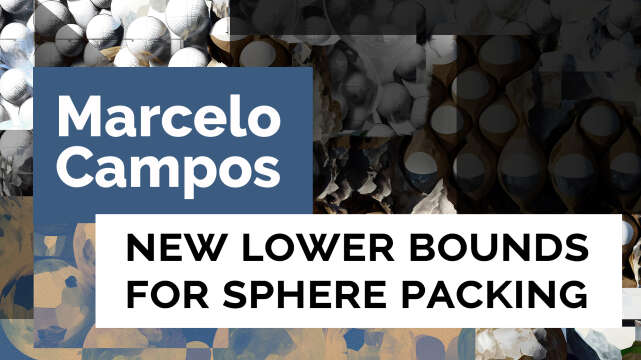
It is our pleasure to share the Big Seminar talk "New Lower Bounds for Sphere Packing" by Marcelo Campos. Seminars schedule and archive are available here - http://combgeo.org/en/events/big-seminar.
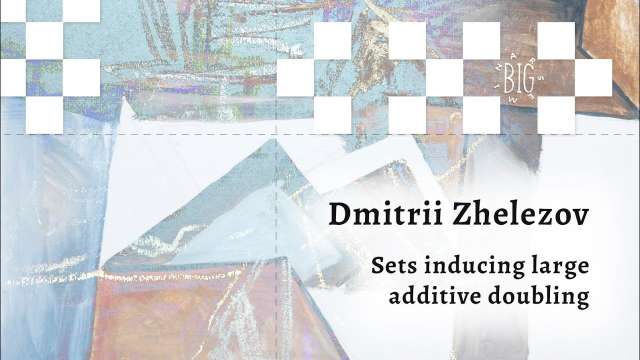
It is our pleasure to share the Big Seminar talk "Sets inducing large additive doubling" by Dmitrii Zhelezov. Seminars schedule and archive are available here - http://combgeo.org/en/events/big-seminar.
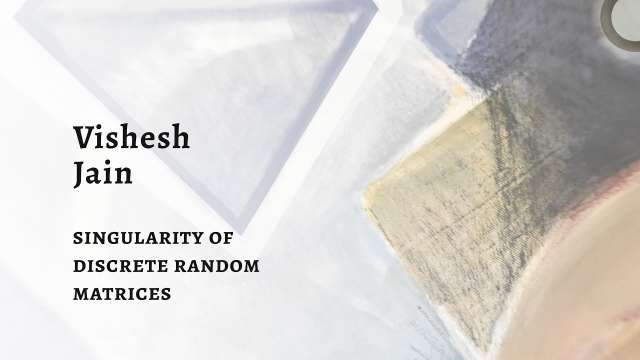
It is our pleasure to share the Big Seminar talk "Singularity of discrete random matrices" by Vishesh Jain. Seminars schedule and archive are available here - http://combgeo.org/en/events/big-seminar.
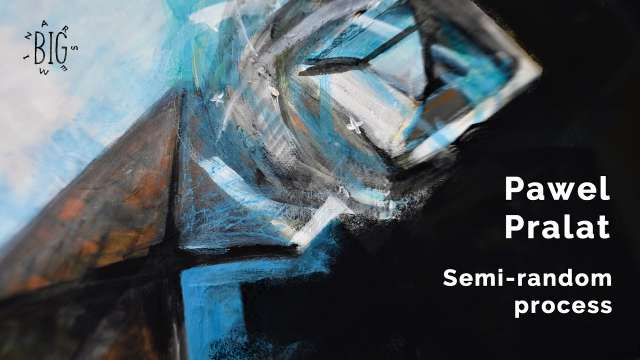
It is our pleasure to share the Big Seminar talk "Semi-random process" by Pawel Pralat. Abstract: The semi-random graph process is a single-player game that begins with an empty graph on n vertices. In each round, a vertex u is presented to the player independently and uniformly at random. The player then adaptively selects a vertex v and adds the edge uv to the graph. For a fixed monotone graph property, the objective of the player is to force the graph to satisfy this property with high probability in as few rounds as possible. During the talk, we will focus on the following problems: a) perfect matchings, b) Hamilton cycles, c) constructing a subgraph isomorphic to an arbitrary fixed graph G. We will also consider a natural generalization of the process to s-uniform hypergraphs. Seminars schedule and archive are available here - http://combgeo.org/en/events/big-seminar.
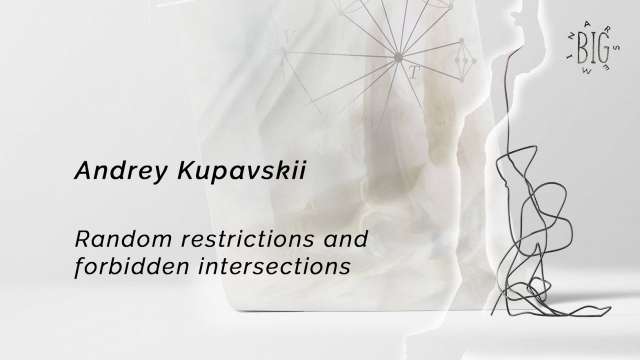
It is our pleasure to share the Big Seminar talk "Random restrictions and forbidden intersections" by Andrey Kupavskii. Abstract: Random restrictions is a powerful tool that played a central role in the breakthrough result by Alweiss et al. on the famous Erdos-Rado sunflower conjecture. In this talk, I will describe a new approach to getting a junta-type approximation for families of sets based on random restrictions. Such approximations have several exciting consequences, and I will present a couple of them. The first one is an upper bound on the size of regular k-uniform intersecting families similar to the one obtained by Ellis, Kalai and Narayanan for intersecting families under a much stronger restriction of being transitive. The second one is significant progress on the t-intersection (and the Erdos-Sos forbidden one intersection) problem for permutations. Improving and simplifying previous results, we show that the largest family of permutations [n] → [n] avoiding pairs of permutations with intersection exactly t-1, has size at most (n-t)!, for t polynomial in n. Previously, this was only known for fixed t. Joint work with Dmitriy Zakharov. Seminars schedule and archive are available here - http://combgeo.org/en/events/big-seminar.